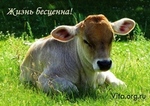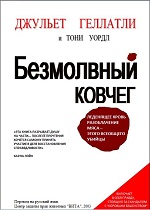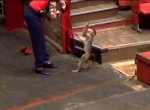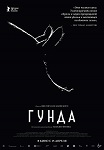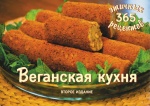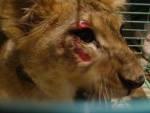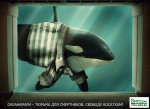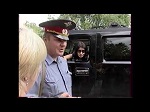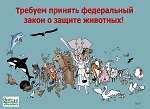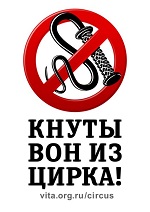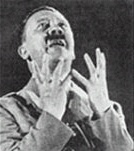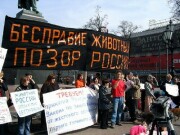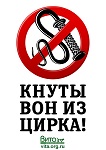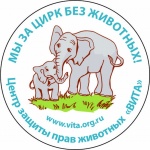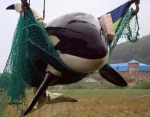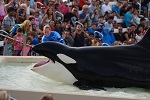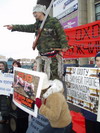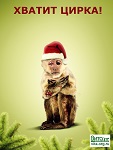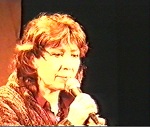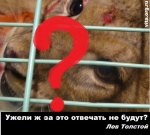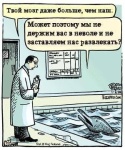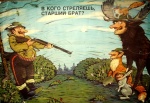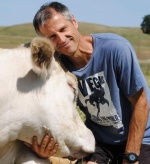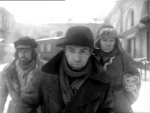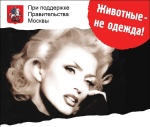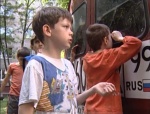 |
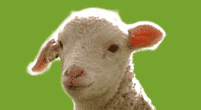 |
|
||||
 |
|
ARCHIVES
OF NEWSLETTERS
|
 ПОИСК НА САЙТЕ: ПОИСК НА САЙТЕ:
|
БИОЭТИКА - почтой |
| |
 № нашего кошелька: 41001212449697 |





|
|
Animal rights news from Russia The Newsletter of the Animal Rights Centre VITA
In this issue:
On April 24, International Day for Laboratory Animals, another Russian University Rejects Animal Experiments An agreement to terminate animal experiments between InterNICHE (www.interniche.org) and Tumenskiy State University (the Department of Zoology and Ichthyology) was signed on April 24th. According to this document, InterNICHE provides the university with computer programs on zoology which will replace animal dissection and animal experiments. The project saves the lives of 32 pigeons, 65 mice, 32 frogs and 65 fish annually. Tumenskiy State University has became the eighth Russian institute
of higher education which has signed an agreement with InterNICHE
to terminate animal experiments. VITA is Not Giving Up on the Law Against Animal Cruelty
Every day VITA receives dozens of complaints from Russian people about cruel treatment of animals: photo businesses with animals, culling of stray dogs, dying animals in travelling circuses and zoos, forcing students to take part in cruel animal experiments and so on and so forth. Due to the absence of any sound animal protection legislation, VITA is trying to resolve the existing situation by attracting the attention of the media, politicians, celebrities and the like. 'However, in the majority of cases we are bound hand and foot and this will be the situation until Russia has adopted a Federal law "On the protection of animals from cruelty".' - says Konstantin Sabinin, VITA's Project Manager, - 'But regrettably, on 21 March 2008, the draft law, for the outcome of which thousands of Russian people had been fighting for 8 (!) years, was completely excluded from consideration by the State Duma of the Russian Federation.' In March 2008 Russian President Dmitry Medvedev made a speech about supporting new legislative initiatives and about the participation of the Social Affairs Chamber in this activity. Using this favourable turn of events VITA, other animal welfare organisations and Russian celebrities sent an appeal to the Head of the Social Affairs Chamber, E. Velikhov, asking for a team to be appointed to renew work on the draft law. On March 8, a press release with the text of the appeal was sent to the Russian media, which initiated a number of publications about the need to adopt legislation on animal protection. On April 15, at the Independent Press-Centre, VITA held a press conference under the title 'What are the consequences of the vacuum in animal protection legislation in Russia?' Among the participants in the press conference were VITA's managers, famous Russian singer Andrey Makarevich, lawyer Evgeny Chernousov, who explained the necessity of adopting the law as a document reflecting Russia's policy in this sphere, and criminal psychologist Sergey Enikolopov, who demonstrated the connection between cruelty towards animals and cruelty towards people. 'New publications in the press and coverage of the subject on TV seem to have had an effect' - says Konstantin Sabinin, - 'At present the State Duma is considering the issue of forming a new team to renew the work on the draft law on animal protection from cruelty, which will include VITA.' VITA is very grateful to the WSPA for financing this campaign.
We also thank Rachel Smith for help in this and other VITA projects. Top Models and Actors Urge a Ban of the Slaughter of Baby Seals On April 14th VITA appealed to top Russian and foreign models to
join the campaign against baby seal slaughter in the Archangel region. VITA has won an award for commitment to animal protection
On the 3d of June VITA was presented with
the Marsh International Animal Welfare Award, established by Marsh
Christian Trust (www.marshchristiantrust.org).
The World Society for the Protection of Animals (www.wspa-international.org)
had nominated VITA for the award for its outstanding contribution
to animal protection. The ceremony took place in the Royal Geographical
Society during the WSPA biennial meeting in London. Prize money
(1000 GBP), a diploma and a glass paperweight were given to Elena
Maroueva, VITA director, who represented the organization at the
award ceremony. "We are really touched to be given such an
honour" - said Elena Maroueva. - "The Award will certainly
give us additional force to continue the work for animal protection." VITA Has Published a Unique Historic Document on the Cruelty of Science in the Early 20th Century
Continuing the archive research work on
materials related to animal protection, VITA has found a unique
brochure - "Cruelty in Modern Science", published in 1901
by Sytin's printing firm in Moscow. After the old Russian text had
been corrected, the brochure appeared on VITA website (www.vita.org.ru)
The author of the brochure, S.K., who chose to remain incognito,
described numerous animal experiments practiced in science and research
institutes of that time. These experiments, shocking in their extreme
cruelty, had absolutely no value or scientific grounds. The author
emphasized the fact that the torture of these laboratory animals
was carried out without any anesthesia. " And yet, a century
later the situation with laboratory animals in our country has barely
changed," says VITA's president, Irina Novozhilova, - In Russia
there is no law that sets restrictions on the actions of experimenters,
and many animal experiments are carried out with either no or insufficient
anesthesia." "Design Against Fur" Contest Winners Announced
On May 12th VITA and the Fur Free Alliance (www.infurmation.org) announced the results of the Design Against Fur 2008 contest for Russia and countries of the former USSR. The judges - Russian celebrities who speak up against fur - combed through more than 500 wonderful works to choose the three best entries. The winners each received cash awards and honorary certificates, and their works will now be appraised by European judges. They will get a chance to win the grand prize - $2,500. Additionally, 25 contestants will receive Special Judges Recognition
or honorable mention certificates from VITA and the Fur Free Alliance. The Head of the Russian Department of WWF Has Been Put in the 'Black Book' of Hunters
Russian animal protection organisations have long been concerned about the incongruous positions of some other organisations regarding animal welfare issues, namely WWF. As an example, WWF's Russian office has announced through the media that it is necessary to allow licensed commercial hunting of endangered species, as they believe that rare and disappearing species should themselves 'earn' the money for their own protection. On April 21, the International Social and Ecological Union (ISEU), Kiev's Ecological and Cultural Centre (KECC) and VITA expressed their protest in the press and the Internet against this WWF 'solution' to the problem, which, according to the ISEU Committee Co-chairman Valery Brinikh, 'discredits the whole wildlife conservation community in the eyes of the public'. The head of WWF Russian office, Igor Chestin, was put in the 'Black
Book' of hunters, created by KECC and VITA, which contains the names
of politicians, high level businessmen and other well-known Russians
who have become notorious for their passion of hunting. (russian
letter) There must be no return to killing! - VITA's campaign to protect homeless animals
Russians to-day are depressed by the current situation with regard to homeless animals, which can be described as critical. Unfortunately, in every city and town in Russia, apart from Moscow and St Petersburg, we see a continuation of the practice of killing dogs and cats made homeless by human beings. The killing of these animals often takes place in the presence of people who love them, pensioners and children, which means that both animals and people suffer. And even in Moscow, which has been an exemplar for other towns because for the last six years the killing of pets has been forbidden in the capital, there have been ever more frequent cases of animals vanishing without trace, despite their owners going to the "holding stations" within hours of their disappearance. VITA considers that the main reason for this unhappy situation of stray animals lies in Russia's failure to place state controls on animal breeding. In this country there is no legislation to limit breeding. Many Russians still do not neuter their pets, wrongly supposing that pets must be allowed for their own well-being to produce offspring. The other powerful stream of unwanted animals is caused by those who breed animals as a business (dealers). Since the beginning of the 1990s the breeding business has been booming since it is highly profitable and is not subject to taxes or any form of state regulation. Unfortunately, the situation is made even worse by the mistaken strategy of government bureaucrats, who conduct an endless war against the consequences of uncontrolled breeding but do nothing to tackle the causes of the problem. Thus the Moscow city government has allocated 900 million roubles (!) to build seventeen gigantic shelters for two, three or five thousand animals, which is completely pointless if breeding is allowed to continue unrestricted. What is more, to have so many animals crammed into one place in these mega-shelters is just asking for disease epidemics that would turn the "shelters" into death factories. Russian animal welfare organisations believe that the only remedy for this dire situation is a state tax on the breeding of animals (pets), accompanied by campaigns to popularise spaying and neutering of pets and to encourage people to acquire pets from animal shelters. In fact, measures to restrict pet-breeding were included in the text of the Federal law "On the protection of animals from cruelty" which was, unfortunately, rejected by President Putin in 2000. In June 2008 when feelings about the treatment of homeless animals were running high among the populace VITA organised three events to highlight the problem of strays. Since the campaign attracted the support of Russian super-stars all the events gained wide coverage in the media: A VITA press-conference with the title, "Homeless animals: how to solve the problem without re-inventing the wheel"
The participants included celebrities Yurii Antonov, Laima Vaikule, Aleksei Serebryakov as well as VITA and the head of the "Centre" veterinary clinic. A round-table discussion on "Man and animals"The
discussion took place at the University of the Russian Academy of
Education in Moscow on 18 June 2008; participants included representatives
of the Social Affairs Chamber of the Russian Federation, state departments,
famous figures from the worlds of culture and education, and animal
protection societies. The participants discussed the problem of
stray animals in Moscow and Russia and the urgent need for the Federal
law "On the protection of animals from cruelty" to be
passed. The participants included Elena Kamburova, singer, People's
Artist of Russia; Mikhail Berulava, deputy chairman of the Social
Affairs Chamber commission on ecology and environmental protection;
Liudmila Kasatkina, People's Artist; Andrei Makarevich, People's
Artist; Nikolai Nikandrov, president of the Russian Academy of Education;
Aleksandr Tsigal, sculptor, member of the Russian Academy of Fine
Arts; Irina Novozhilova, VITA president; Viktor Shudegov, Deputy
of the State Duma of the Russian Federation. Demonstration for the defence of homeless animals under the slogan "No return to killing!"
At 12 noon on 26 June a demo took place in Novopushkinskii Square
to protest against attempts by Moscow officials to return to the
practice of killing homeless animals. The demonstrators held banners
demanding "No return to killing!" and showed on a computer
screen how dogs were caught -- in a manner contrary to the humane
sterilisation programme the city authorities had declared they would
implement. The organiser of this event was VITA, in collaboration
with other Russian animal protection organisations. Several Russian
celebrities took part for the first time in a public demonstration
of this kind: Andrei Makarevich, Yurii Antonov, Aleksandr Gradskii,
Elena Kamburova, Elena Papanova, the "Stsenokardiya" group,
the lawyer Evgenii Chernousov and other famous figures from the
world of culture, as well as public figures. Other news: The Prisoners of the Animal Theatre 'Kashtanka' are Now Free
Even the most inventive science fiction writer's mind would not have come up with the idea of a live animal 'museum', where visitors are offered the chance to "see 150 species of animals for just 15 Roubles (half euro)" in a tiny room of only 32 sq meters. Foxes, monkeys, snakes, raccoons, chinchillas, pigs, rabbits, otters, minks, roosters, tortoises and many other animals were crammed in tiny cages barely bigger than the size of their own bodies. Animals that died were easily replaced with live ones. For the past several years, animal welfare organizations have been receiving complaints from the public about the horrific conditions in which the animals were kept in the 'Kashtanka' Animal Theatre located in the grounds of the 'Malysh' children's park in Odintsovo (Moscow region). The 90-year-old owner of the theatre, having an obstinate disposition, has been stubbornly refusing requests to find a place with better conditions for the animals (in Russia there is no law under which animals could be confiscated and the guilty charged with cruelty to the animals). However, in April 2008, thanks to the joint efforts of activists
of animal welfare organisations 'Bim', VITA and 'Dog & Cat',
the situation was finally resolved. Among the actions taken to rescue
the animals were the involvement of the press, negotiations with
the management of the 'Malysh' Park, an appeal to the public prosecutor's
office, calling on inspectors from the Veterinary and Sanitary and
Epidemiological Services, an appeal to the mayor of Odintsovo and
to the Governor of Moscow region. Finally, permission to relocate
the animals was issued and on April 28 the victims of human selfishness
moved to their new spacious open-air cages at the 'Bim' charity
shelter near Moscow.
From April 26-28th VITA took part in the 16th World Veterinary Congress held in the Moscow concert complex "Izmaylovo". For three days, hundreds of representatives of the congress - veterinarians, teachers and students had the opportunity to learn about alternatives to animal experiments that were presented at the InterNICHE and VITA stand. This year, alternatives - the veterinary clinical skills training manikin "Critical Care Jerry", various plastic models, videos, software and, for the first time, a P.O.P. trainer, unique surgery simulator, were presented. The POP trainer allows training in dissection and various operations and uses a pump to simulate blood circulation and perfusion. An ethically sourced animal organ is put inside the device and then perfused with coloured water. This trainer, which allows trainees to perform live surgery without harming animals, impressed even the most skeptical of the congress participants. "The congress is an important event for us because it is here where we make new contacts which often lead to the introduction of humane alternatives in Russian universities" - said Elena Maroueva, VITA director and InterNICHE National Contact for Russia.
Russian Physiologists and Pharmacologists Learn About Humane Methods of Teaching
On May 21st Elena Maroueva took part in the First International Conference of Veterinary Pharmacologists, held in St. Petersburg. The conference was held in the St. Petersburg State Academy of Veterinary Medicine, one of the first Russian educational institutions to have introduced alternatives to animal experiments, back in October 2005. Elena Maroueva gave a talk on modern humane methods of teaching. The Siberian Congress of Physiologists took place from June 25
- 27th in Barnaul. Olga Kononchuk from InterNICHE-Siberia and the
Kemerovo branch of VITA attended this event. The Congress included
17 symposia on different physiological themes conducted by famous
Russian physiologists. Olga Kononchuk negotiated with different
teachers, discussing the possibility of introducing alternative
methods in their universities. Her report "Humane education
of life science specialists" was published in the Congress
proceedings.
On 6 May 2008 VITA began to protect Australian kangaroos, who are being ruthlessly destroyed for their skins and meat. Russia is one of the biggest consumers of kangaroo meat. It is used for making different sorts of meat food, sausages most of all. Kangaroo meat is cooked in the Russian restaurants which offer dishes of Australian cuisine. A chain of Russian shops sells shoes and clothes made of kangaroo skin. To mark the start of the campaign VITA has sent a letter to the
Australian ambassador in Russia, M. Leslie Adrian Row, to ask for
his support in the campaign. Video
Dear Animal Friend, Thank you for your love and compassion for animals. Thank you
for caring about abused animals in Russia - such a faraway place
to you. Thank you for being there for animals in your own way. We also thank Sheelagh Graham, Margarita Williams and Elizaveta Komarova for translating and editing this newsletter. If you are not on VITA's mailing list yet but would like to receive our free quarterly e-newsletter, please send your e-mail address to vita-russia@yandex.ru . To unsubscribe, please write to the same address. Yours truly, Elena Maroueva, Irina Novozilova
VITA's Bank Details
|




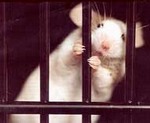

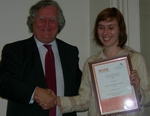

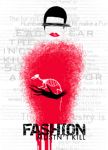
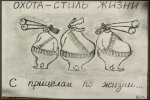


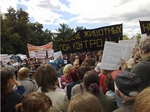

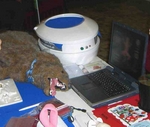


 ВАЖНО!
ВАЖНО!